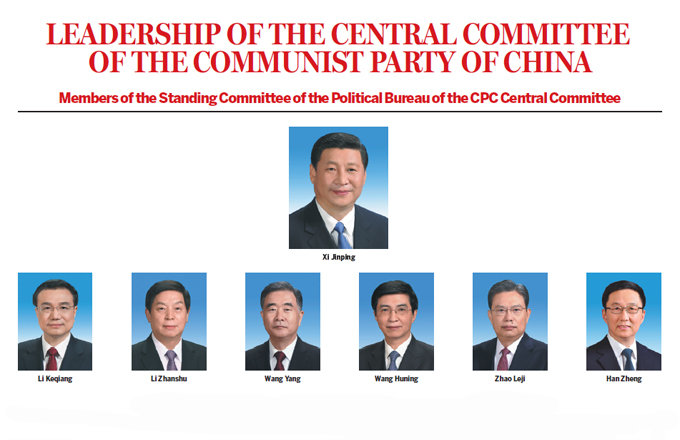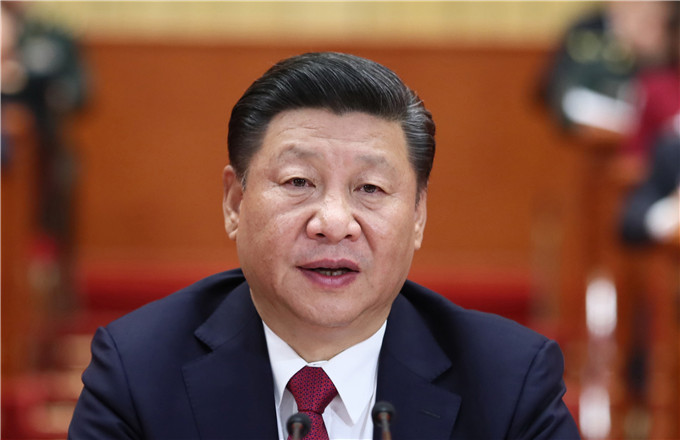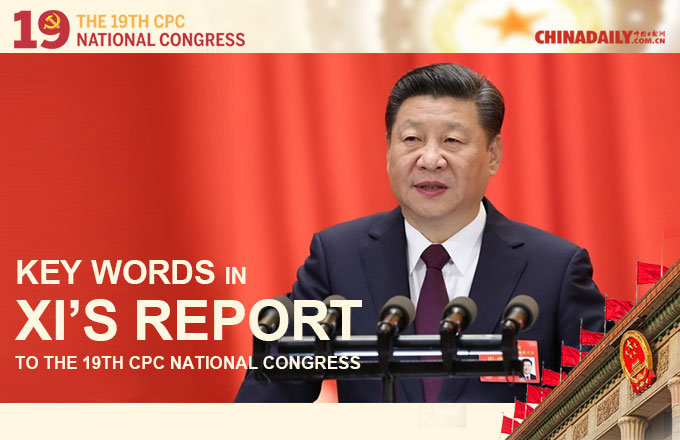Financial expert lives on cutting edge of change

Zhang, 41, is one of the first people enterprises visit when in need of financing solutions or when new policies are launched.
With 19 years of experience in the finance sector, the delegate to the 19th CPC National Congress said that his job, generally speaking, is "facilitating cross-border trade".
But that may be an understatement. Zhang is also a pioneer and an innovator, particularly when many of the businesses he assists are the first of their kind. He has often found himself among the first people to understand, operate and sometimes even initiate a business, as China steadily opens its financial markets.
Opening up means that Zhang and his colleagues need to tap into new ways of thinking, or even start from scratch-for example, when figuring out how to make cross-border trade settlements in renminbi.
Enterprises, domestically and offshore, are now getting used to quick and safe cross-border settlements in the Chinese currency. Only a few years ago, it was a problem. Little infrastructure was in place for banks and enterprises, and the difficulties were heightened by the fact that US dollars dominated settlements.
That was a challenge Zhang met head-on.
"Resolve weighs more than difficulty," he said. "For financial professionals, difficulties create opportunities."
As markets have opened up, and demand for Chinese currency increases, Zhang has spent long hours, day and night, in his office reading and studying cross-border trade settlement mechanisms.
For a year starting in June 2008, he spent most of his spare time in the office researching solutions. On July 6, 2009, the first cross-border renminbi trade settlement was completed at Bank of China.
To establish a clearing network that will enable long-term and sustainable operations, Zhang and his team worked on crafting clearing agreements and negotiating with overseas financial institutions, bringing lenders together to work on a "green channel" for the renminbi. Some 30 institutions opened clearing accounts.
In 2009, the annual combined volume of cross-border trade settlements in renminbi at Bank of China's Shanghai branch was about 1 billion yuan ($150.5 million). That expanded to 610 billion yuan by the end of 2016.
"Growth in the global use of renminbi in the past few years has been faster than currencies from other countries," he said. "As a practitioner in the global use of renminbi, I feel deeply proud to have experienced one of the most significant steps of the cause."
When the China (Shanghai) Pilot Free Trade Zone was established in 2013 and new demands emerged amid market opening-up and financial reforms, Zhang said he and his team were excited about the ample possibilities for financial innovation.
For Zhang, it takes understanding of domestic policies and international standards, as well as insight into clients' needs, to come up with good solutions. It is like a highway for stable and steady opening-up for capital, and regulators can adjust the flow based on demand, he said.
Zhang gets a sense of fulfillment when clients' demands are met.
"I feel really lucky that in my career I have been able to closely observe the reform and opening-up of markets and have played a role in serving the real economy."
- How will anti-graft campaign unfold after 19th CPC National Congress?
- Volunteers create barrier-free films for visually and hearing impaired
- Chinese researchers find "secret weapon" of weed
- Potala Palace gets annual facelift
-
Yang Jiechi -- Member of Political Bureau of CPC Central Committee




















